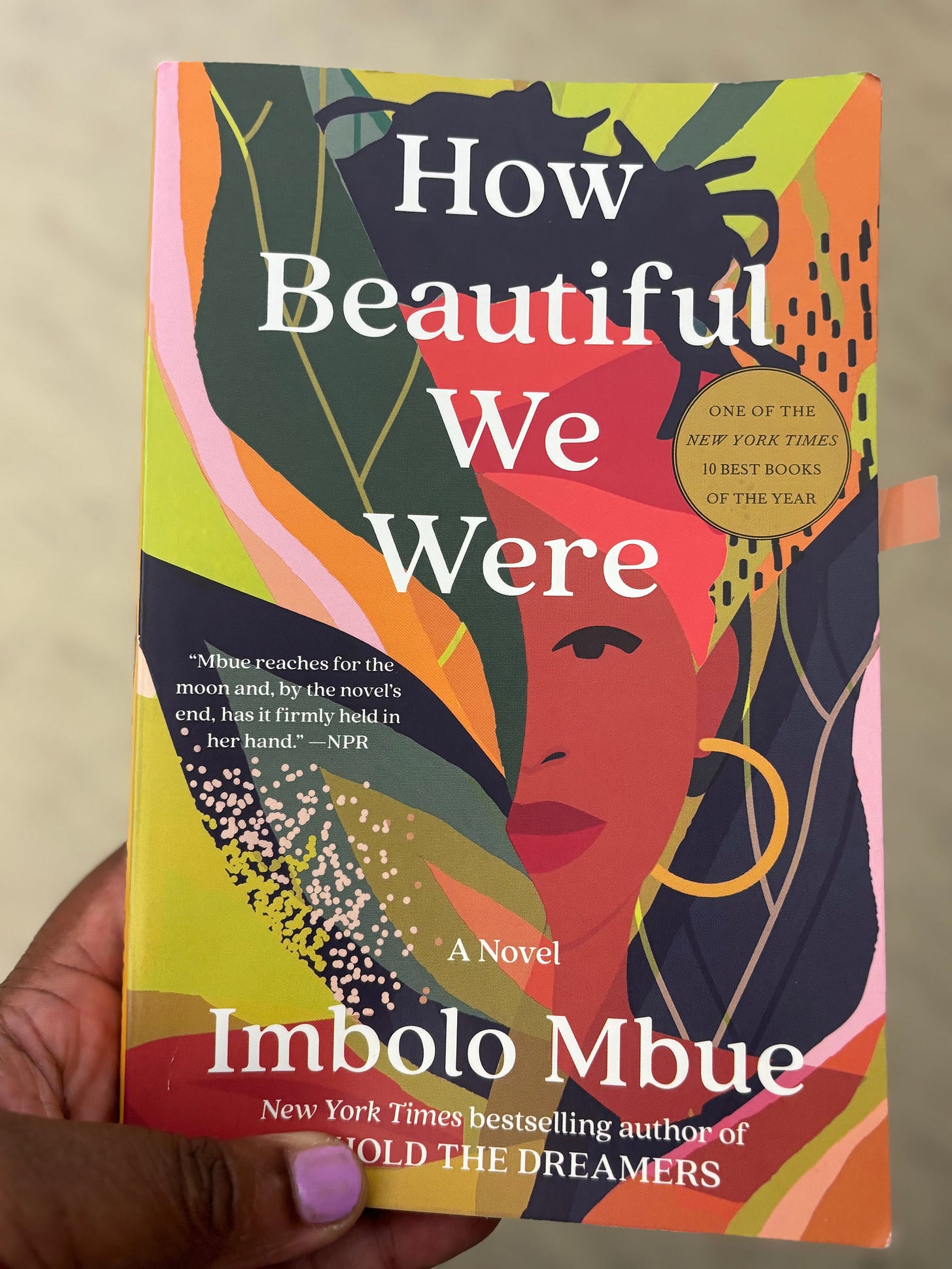How Beautiful We Were: A Novel That Leaves Us With A Question
What Is The Price Of Destroying Human Life?
Themes: Environmental Justice • Revolution • Corruption • Feminism
Rating: ★★★★☆ (4.5/5)
“We should have known the end was near.”
These words haunted me —
In the literary world, it’s well known that first sentences can either make or break a book. After eyeing the cover, once the reader reads the opening line, that is the moment where we as readers decide if it’s enticing enough to keep going, or does it go back to collecting dust on the shelf.
Set in the fictional African village of Kosawa, the story follows a community devastated by environmental destruction caused by an American oil company, Pexton. Mbue crafts a lyrical, yet despairingly community narrative; seen told through the lens of the elders and youth that sheds light on memories, shared trauma, and the difficult question: how do you fight for your land when every system is built to keep it from you?
The village is betrayed by the head of their country and their local chief. Their land is sold without their knowledge; waste from the oil company seeps into their farmlands, damaging their livelihood. As their chief and his wives continues to live in their nicely built house, strut their American clothing, and digest clean water the people of Kosawa are suffering and meeting the ancestor sooner than anticipated. Prayers for a long and healthy life are useless.
“We were young, but we knew death or be impartial.”
One of our main characters, Thula, starts off as the least likely to stand up for her village due to her quiet and solemn nature. But as the saying goes, God choses those of us who are the least likely in the eyes of their peers.
Another characteristic of hers is that she is stubborn, thankfully for this she able to speak up for herself and her age mates, such as getting them to further education outside of their village. She was the only girl who took this journey with them. She always was the only one of them to make it to American soil and witness the exploitation and corruption within a country she admired.
With this information, she wrote back home encouraging her peers to accomplish what their grandparents and parents could not. Doing so in the name of their late siblings, cousins, and community members who transitioned to the other side.
The themes within this novel speak directly to the mission of Afro Reads. It is a story deeply rooted in land—not just in terms of geography, but as identity, heritage, and spirit. Mbue reveals how colonial extraction never truly ended; it simply evolved. Kosawa’s battle mirrors real-world struggles across the African continent and throughout the diaspora, from the Niger Delta across oceans to Flint, Michigan, USA where the poor and marginalized continue to bear the brunt of environmental harm.
This novel is what I would describe as a slow burn. I believe it was done intentionally for it was slow before the idea of revolution came, it was slow for all to see that no one was coming to help them, and that ultimately, the only savior would be themselves.
Quotes 💭
“But Papa cares little about that — in his desperation to never see his only son breathe his last again, he forges alliance with a man he despises.”
“Only when we became parents did we realize how we could harm our children in an attempt to clean out for them the smothering decay of the world.”
“They introduced us to money, not because we needed it but because we had to learn how it worked for their sake.”
“They spilled their oil on our land with recklessness, we spilled it in vengeance.”
“Don’t you think the time has come for you start living by your own rules.”
Author Spotlight 💡
Imbolo Mbue is a Cameroonian-American writer known for her debut novel Behold the Dreamers, which won the PEN/Faulkner Award for Fiction. With How Beautiful We Were, she turns her lens toward the environmental and spiritual costs of colonial capitalism in Africa, proving once again that she is one of the most vital voices of African literature today.






Lovely review! Thanks for sharing.